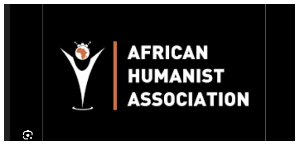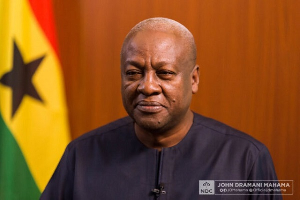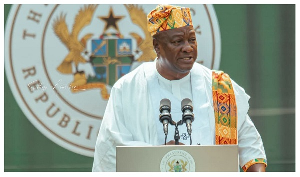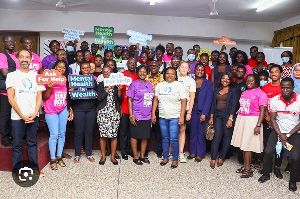I have been tasked to present 'African humanism' and highlight its basic philosophy, especially how it differs from 'Western humanism' and other cognates such as Eastern, Asian, and Oceanian humanism. This task is not easy and is fraught with descriptive challenges. Presenting 'African humanism' in English—a Western language—adds another layer of complexity. However, this is the medium we have.
I am conflicted about strictly presenting humanism in African, Asian, or European forms because these compartmentalizations do not resonate. While distinctions may offer explanatory value, they are fundamentally flawed, incompatible, and inconsistent with the universal outlook embedded in humanist philosophy. Considering these conceptual conflicts, regionalized humanisms constitute vague representations and explain very little. Thus, I have adopted the working title, "African Humanism as Everything, Anything, Nothing, and Something."
Africa is not a Western region, and Africans are not Westerners. Therefore, seen strictly as Western, humanism beyond the West is not. African humanism could be argued as nothing—empty and devoid of real, substantial, and meaningful content. So conceived, the humanist cosmos leaves no room for the other or another, for the African. The African humanist cosmology is nothing but a poor imitation of Western humanism, an exotic and freakish formation.
Traced to an intellectual movement in 14th- and early-15th-century Europe, the humanist outlook is often represented as a Western phenomenon and heritage. However, the values and ideals codified in Western humanism apply to other cultures and societies. Incidentally, nothing is said about similar intellectual movements in Africa, especially campaigns for cultural reformation and rebirth, and the tension with religious dogmas, magic, and superstitious orthodoxies. The timeline of Western humanism relates to Africa in ways that do not resonate with humanist values. The legacies of Western contact with Africa since the 15th century include conquest, slavery, colonialism, racism, apartheid, and other experiences incompatible with so-called Western humanist ideals. Therefore, an African humanism that deserves recognition must be differently framed.
If the narrative that "We are all Africans" is anything to go by, then African humanism is arguably everything. It is the fulcrum and mother of humanism. Other humanisms are offshoots and take their bearing from the African humanist cosmology. Whether Western, Eastern, Northern, Southern, American, European, Asian, or Australian, humanisms of all stripes constitute adaptations and reflections of African humanism.
The plausibility of this proposition lies not only in the "Out of Africa" explanation of the origin and spread of modern humans but also in the fact that humanism codifies values and principles that resonate with all human beings—individual freedom and responsibility, reason, critical thinking, tolerance, compassion, and cooperation.
Just like the proposition that Western humanism is everything, African humanism as everything risks conflating varieties of humanist experience. It omits or ignores the particularities of universal humanism and other specificities that reflect the contexts of cultures and societies over the ages. Highlighting these specificities and particularities presents humanism in its fullness and richness.
Meanwhile, arguing that African humanism is everything risks suggesting that it is anything or could be anything. Portrayed this way, African humanism lacks basic ideas, philosophies, principles, and values. The humanist outlook loses its credibility because, as anything, African humanism is bereft of distinct elements and characteristics. One could then argue that humanism is religion or that religion is a form of humanism, even that humanism is inhumanism, anti-humanism, or humaneism. Anything can be placed in the humanist box. It could also be argued that humanism is Africanism or Westernism, dogmatism or racism, or that extremism is a form of humanism. So argued, African humanism is denied rational and moral force, merit, and appeal.
The identification of African humanism with Ubuntu is well known and constitutes part of the problem—the problem of the conception and misconception, representation and misrepresentation of 'African humanism.' Ubuntu, a term from the Zulu and Xhosa languages and cultures in South Africa, translates as "I am because you are" or "I am because we are." Ubuntu is an expression of African humanism. It emphasizes the interconnectedness of human beings and stresses the link of the individual to the social and physical worlds. Ubuntu codifies human connection and community; it stands for common fraternity and humanity, and how humanity manifests not only in the other but also with the other. Ubuntu is predicated on values of sharing, caring, and trust. It is a form of humanism forged in contention with traditional forces of supernaturalism and anti-humanity in the Zulu and Xhosa cultural worlds. It is pertinent to note that thousands of other cultures, conceptions, configurations, and articulations of humanity and humanness exist and have always existed. Varieties of translation and adaptation of humanistic ideas and impulses manifest within the region. For instance, concepts of Nwanne or Nwanna among the Igbos of Nigeria, the Yoruba idea of Omoluabi, the Swahili notion of Harambe, and the Wolof idea of Teranga encapsulate configurations that speak to the same entity, humanity, as other humanisms.
Cultural outsiders have rendered these concepts in exotic fashions, and their limitations and conceptual shortcomings lace these renditions. Meanwhile, cultural insiders have largely tagged along, romanticizing these exotic formations, which have become 'established' knowledge. Cultural insiders have been unable to problematize and re-present these notions in non-exotic ways that highlight their universality, richness, and profundities, especially in the face of historical vicissitudes, anti-human encounters, incursions, and experiences, and the onslaught of religion, superstitions, and other cultural beliefs and ideologies that degrade and undermine the human being.
As something, African humanism is beyond Ubuntu, Harambe, Teranga, Nwanne, and Omoluabi cultural formations. African humanism is not monolithic but a tapestry that reflects the diverse experiences of Africans. Humanism philosophically propels the struggles and anticipations for renewal and rebirth; the yearning for progressive emancipation of the African human spirit. It highlights efforts to contest and overcome traditional, Christian, and Islamic religious orthodoxies, ideological and structural inhibitions, threats, and forces that militate against human liberation, and intellectual and moral progress.
In conclusion, Africa is a crossroads of social, cultural, political, and economic influences that have positively and negatively impacted the region and its people. African humanism finds expression in contending with these crossroads and the disruptions and dilemmas, promises and possibilities. The African humanist testament encapsulates unique experiences and challenges linked to overcoming these tensions, contentions, conflicts, and contradictions. These experiences are diverse, differing from time to time, individual to individual, culture to culture, and country to country. They are social, political, economic, and cultural. These disruptions and dilemmas stare Africans in the face, casting an ominous shadow on the region's future and prospects. African humanism is a process, not a package, and is always in a state of change and becoming.
African humanism is a continuum, not a constant; a direction, not a destination. It is a constantly unfolding, revealing, and evolving phenomenon that mirrors and reflects the needs of its time, each time, place, and season. In the absence of a saving and redeeming deity, in the face of traditional, Christian, and Islamic religious oppression and tyranny, African humanism presents each generation of Africans with opportunities and possibilities to remake itself; to reshape its destiny through creative, critical, and innovative endeavors. Will Africans rise to this challenge? Or will they cower or detour out of fear?
How Africans respond to these challenges and dilemmas, how they deploy humanist excellences—the virtues of defiance, rebellion, assertiveness, affirmation, and compassion—in response to these threats, and their ability to redefine, reinvent, and recreate themselves in tackling these dilemmas will determine the differences and distinctions of African humanism from Western humanism and other cognates.
Opinions of Tuesday, 5 November 2024
Columnist: Leo Igwe



















